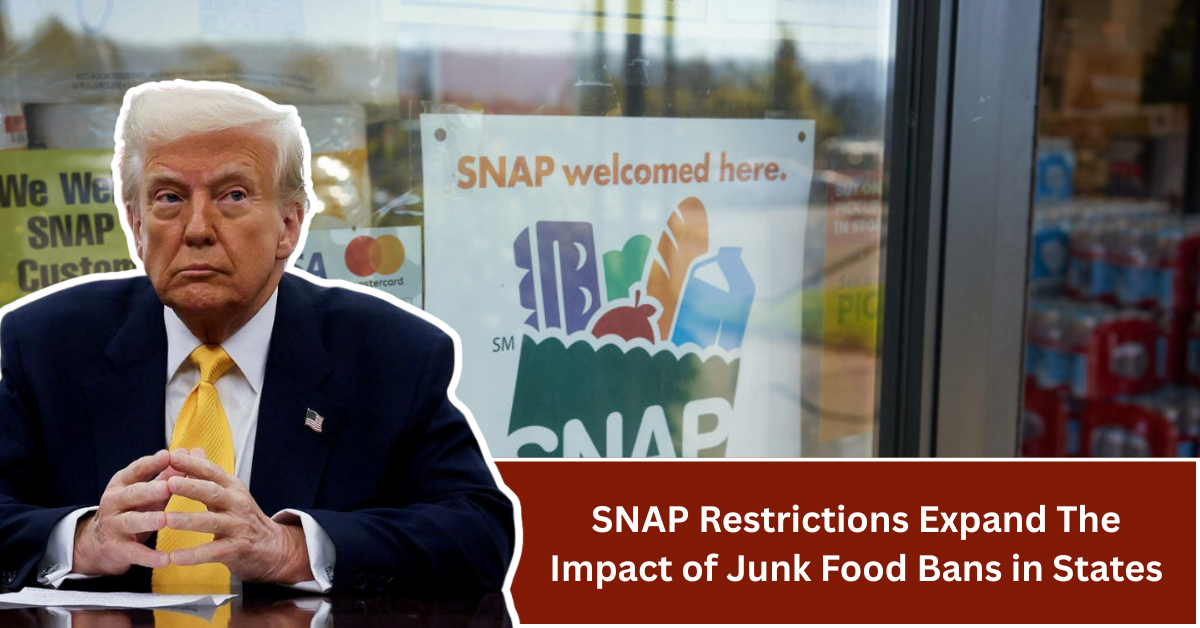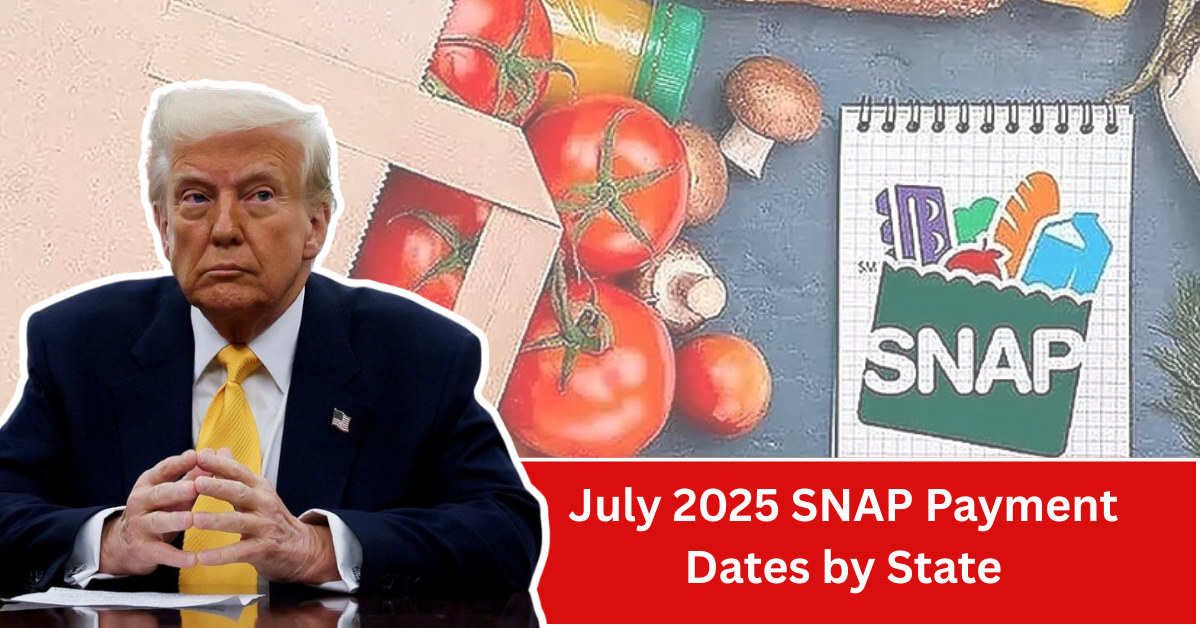
Many families who depend on government help for food are facing difficult times ahead. The SNAP benefits, which provide essential food assistance to millions, are expected to be cut starting 2025. This news has created worry, especially for younger families and those living on tight budgets. Understanding these changes early can help families prepare and avoid bigger problems later.
It is important to know what SNAP benefit cuts mean and how they will affect your household. Luckily, there are steps you can take today to manage your food budget better and find other ways to support your family. This article explains the SNAP benefit changes and offers simple tips on how you can get ready for the coming year.
What Are SNAP Benefits and Why Are They Important?
This Article Includes
- 1 What Are SNAP Benefits and Why Are They Important?
- 2 Why Are SNAP Benefits Being Cut in 2025?
- 3 How Will These Cuts Affect Families in India?
- 4 Steps Families Can Take Now to Prepare for SNAP Benefit Cuts
- 5 1. Create a Practical Food Budget
- 6 2. Shop Smart with a List
- 7 3. Cook More at Home
- 8 4. Use Community Resources
- 9 5. Grow Your Own Food
- 10 6. Educate Yourself About Food Nutrition
- 11 7. Save Energy and Reduce Waste
- 12 8. Explore Additional Income Opportunities
- 13 What To Do If You Already Receive Food Assistance
- 14 Conclusion: Start Preparing Today for a Better Tomorrow
SNAP stands for Supplemental Nutrition Assistance Program. It gives monthly food benefits to low-income families, helping them buy groceries. The goal is to reduce hunger and improve nutrition for those who need it most. For many, SNAP means feeding children, buying fruits and vegetables, and avoiding hunger.
For families living paycheck to paycheck, losing even a small share of these benefits can create big challenges. SNAP acts as a safety net, making sure families do not have to skip meals or rely on cheaper, less healthy food options. With the upcoming cuts, families must rethink their food planning and spending.
Why Are SNAP Benefits Being Cut in 2025?
The SNAP benefit cuts are mainly due to changes in government policies and funding. During recent years, programs like SNAP grew stronger to support families during the pandemic. Now, as the situation improves, the government plans to reduce some of these extra benefits. This means the amount of money given for food will go down in 2025.
While these changes aim to balance budgets, they create new pressures on families who still face high living costs. Understanding these reasons can help families accept the reality and prepare wisely instead of being caught off guard.
How Will These Cuts Affect Families in India?
Though SNAP is a US-based program, the lessons from these changes resonate with many Indian families who depend on food support, subsidies, or government schemes. India has its own food security programs, and any reduction in help can make it harder for low-income families to get enough healthy food.
Young families, daily wage workers, and those living in urban areas with rising costs might feel the impact the most. It is important for families across India to learn from this news and apply similar strategies to prepare for any reductions in subsidies or aid.
Steps Families Can Take Now to Prepare for SNAP Benefit Cuts
It’s better to start planning today rather than wait until the cuts happen. Here are some simple steps your family can follow to manage food costs wisely and improve your food security.
1. Create a Practical Food Budget
Start by understanding how much you currently spend on groceries each month. Track where your money goes and identify any unnecessary expenses. Setting a realistic budget helps you control spending and plan meals better. Try to focus on nutritious foods that give more value for money.
2. Shop Smart with a List
Planning your grocery shopping with a list can reduce impulse buying. Look for discounts, local markets, or wholesale stores where prices are lower. Buying seasonal fruits and vegetables can also save money while keeping meals healthy.
3. Cook More at Home
Preparing meals at home is generally cheaper and healthier than eating out. Cooking in bulk and freezing portions for later can reduce daily stress and save money. Involve family members in cooking; it makes the process faster and more fun.
4. Use Community Resources
Many areas have food banks, community kitchens, or local groups that offer meal support or discounted groceries. Connecting with these resources can provide temporary relief if your family needs it. Look for NGOs or government schemes in your locality and apply for all help available.
5. Grow Your Own Food
If possible, start a small kitchen garden at home. Growing vegetables or herbs can reduce grocery costs and ensure fresh produce for your meals. Even a balcony or windowsill with pots can grow herbs like mint, coriander, or chillies.
6. Educate Yourself About Food Nutrition
Learn about healthy eating on a budget. Understanding which foods provide the most nutrients for the least cost helps you make better food choices. Focus on legumes, whole grains, and seasonal produce to keep your family healthy without overspending.
7. Save Energy and Reduce Waste
Save money by reducing food waste and cooking efficiently. Store leftovers properly and use them in your next meal. Avoid overcooking or overheating food to save on electricity or gas bills. This small effort can lower your monthly expenses.
8. Explore Additional Income Opportunities
If your family can manage, look for small side jobs or online work that fits your skills and schedule. Extra income can help fill gaps caused by reduced benefits. There are many part-time jobs, freelancing options, or local work opportunities that can supplement your income.
What To Do If You Already Receive Food Assistance
Check with your local government or welfare office about changes to your food assistance programs. Stay updated on new rules, deadlines, and eligibility criteria. If you are affected by benefit cuts, ask about other support programs or emergency help available in your area.
Remember, you are not alone. Many families face similar challenges, and by staying informed and proactive, you can protect your family’s health and wellbeing.
Conclusion: Start Preparing Today for a Better Tomorrow
While SNAP benefit cuts in 2025 are tough news, planning ahead can make a big difference. By budgeting smartly, cooking efficiently, using local resources, and exploring income options, families can face these changes without losing hope. Taking small steps now helps you build resilience and keep your family safe and fed even during difficult times.
Stay connected with community support groups, educate yourself, and keep looking for ways to stretch every rupee. Preparation is the key to turning uncertainty into strength. Start acting today for your family’s food security tomorrow.






































